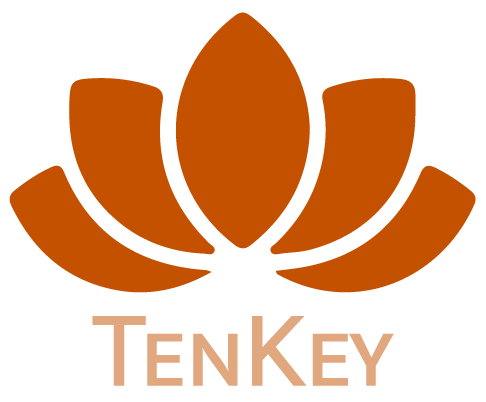Budgeting around Christmas can be tough, but with careful planning you can blend the expenses together!
As the year draws to a close, businesses are presented with a valuable opportunity to reflect on their financial performance, set new goals, and implement strategies for the upcoming year. In this comprehensive blog post, we'll explore two crucial aspects of year-end financial planning for businesses - budgeting for the new year and managing expenses, brought to you by TenKey.
Setting Financial Resolutions for 2023:
The end of the year marks the perfect time for businesses to evaluate their financial standing and set resolutions for the upcoming year. A robust financial resolution acts as a guiding framework for achieving fiscal success. Whether it's aiming for increased profitability, reducing debt, or expanding operations, defining clear financial objectives is the first step toward a prosperous year ahead.
Crafting a Business Budget:
A well-crafted budget serves as the financial roadmap for businesses. Start by examining the current year's budget to identify successes and areas for improvement. Consider revenue streams, fixed and variable expenses, and any unforeseen costs that arose during the year. With these insights, businesses can create a realistic and attainable budget for the new year.
Components of an Effective Business Budget:
Revenue Projections: Estimate expected revenue based on historical data, market trends, and any anticipated changes in the business landscape.
Expense Categories: Categorize expenses into fixed and variable categories. Fixed costs include rent and salaries, while variable costs may include marketing expenses and utilities.
Contingency Planning: Allocate a portion of the budget to unforeseen circumstances. This ensures that the business is prepared to handle unexpected expenses without derailing financial stability.
Investment Opportunities: Identify areas where strategic investments can drive growth. This may include upgrading technology, staff training, or expanding product lines.
Long-Term Goals: Align the budget with long-term business goals. Whether it's entering new markets or launching innovative products, the budget should support these overarching objectives.
Managing Holiday Season Spending:
The holiday season often brings increased spending for businesses. From employee bonuses to client gifts, managing these expenses is critical to staying within budgetary constraints. TenKey offers practical tips for navigating the holiday spending spree without compromising financial health.
Tips for Managing Holiday Season Expenses:
Create a Detailed Budget: Allocate specific amounts for employee bonuses, client gifts, and any festive events. Having a detailed budget helps prevent overspending.
Negotiate Discounts with Suppliers: Reach out to suppliers for potential discounts on bulk orders for gifts or decorations. Negotiating favorable terms can significantly impact the overall budget.
Encourage Responsible Spending: Communicate spending guidelines to employees, emphasizing responsible and mindful spending during the holiday season.
Evaluate the ROI of Holiday Initiatives: Assess the return on investment for holiday-related activities. This includes analyzing the impact of client gifts on business relationships and the morale boost from employee bonuses.
Post-Holiday Financial Assessment: Conduct a thorough financial assessment after the holidays. Analyze the actual spending versus the budgeted amounts and identify areas for improvement in future holiday seasons.
Utilizing Technology for Budgeting and Expense Management:
TenKey understands that technology plays a pivotal role in modern financial management. Leveraging accounting software and expense management tools can streamline processes, enhance accuracy, and provide real-time insights into the financial health of the business.
Benefits of Technology in Financial Management:
Automation of Routine Tasks: Reduce manual errors and save time by automating routine financial tasks, such as invoicing and expense tracking.
Real-Time Reporting: Access up-to-date financial reports, allowing businesses to make informed decisions based on the most current information.
Expense Tracking and Control: Implement expense management tools to track and control spending. Set spending limits, categorize expenses, and receive alerts for any unusual transactions.
Forecasting and Analysis: Utilize forecasting tools to predict future financial trends and conduct in-depth analysis for strategic planning.
Integration with Financial Institutions: Streamline financial processes by integrating accounting software with bank accounts and other financial institutions. This ensures accurate and timely transaction recording.
Navigating Economic Uncertainties in the New Year:
In an ever-evolving business landscape, navigating economic uncertainties is a crucial aspect of financial planning. Businesses should develop strategies to adapt to changing market conditions and mitigate potential risks.
Strategies for Navigating Economic Uncertainties:
Scenario Planning: Develop multiple financial scenarios based on different economic outcomes. This allows businesses to be prepared for a range of possibilities.
Flexible Budgeting: Adopt a flexible budgeting approach that can be adjusted as economic conditions change. This ensures that the budget remains relevant and effective in different scenarios.
Diversification: Explore opportunities for diversification in products, services, or markets. Diversification can help mitigate risks associated with economic fluctuations in specific sectors.
Continuous Monitoring: Regularly monitor Key economic indicators relevant to the industry. Stay informed about market trends, inflation rates, and other factors that can impact financial stability.
Trust Tenkey
As we approach the end of the year, businesses have the opportunity to set the stage for financial success in the coming months. By crafting a well-thought-out budget, managing holiday season spending effectively, leveraging technology for financial management, and developing strategies to navigate economic uncertainties, businesses can navigate the complexities of the financial landscape with confidence. TenKey remains committed to supporting businesses on their financial journey, providing tools and expertise to ensure a prosperous and financially sound new year.



